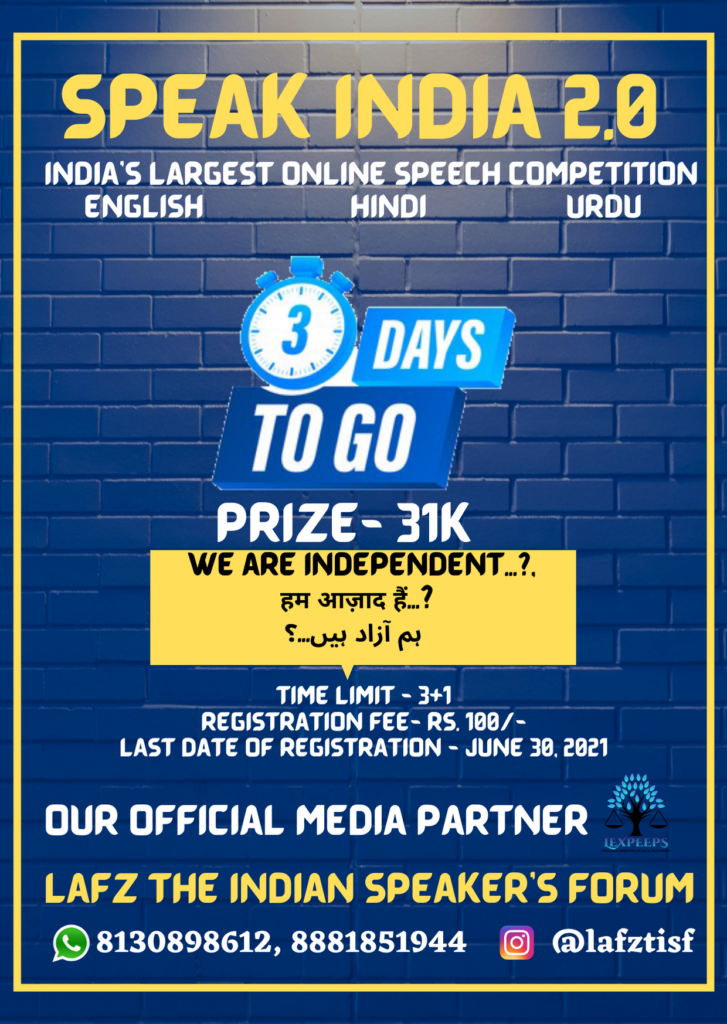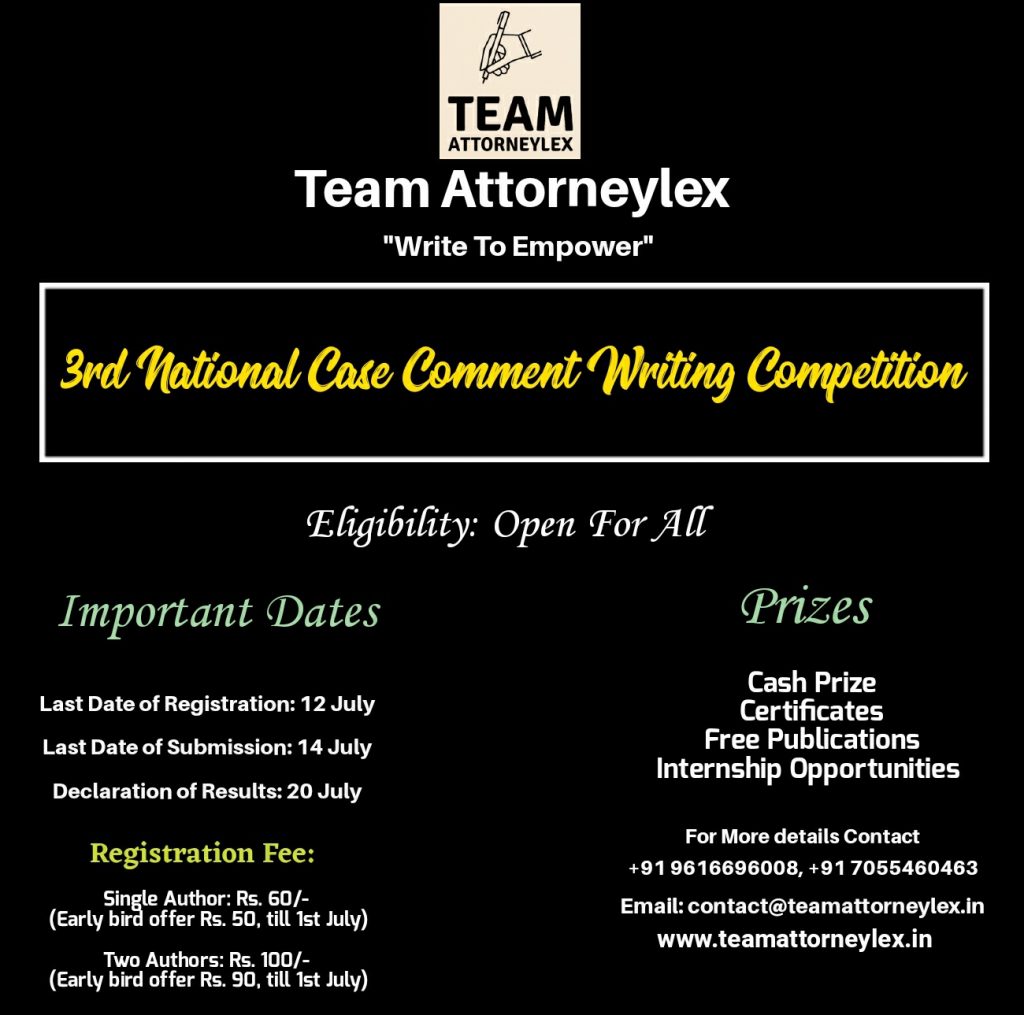About Bennett University:
Bennett University has been established by ‘Times Group’, India’s largest media conglomerate through Act No. 24 of 2016 passed by the Government of Uttar Pradesh. The University at present offers unique inter-disciplinary and contemporary courses through its Schools of Engineering and Applied Sciences, Management, Law, Design, Media & Liberal Arts and Public Policy. In addition, the University has also established the Centres for Innovation & Entrepreneurship and External Relation & Executive Education. Bennett University as part of its plan to excel as the frontline multi-and inter-disciplinary University has established partnerships with Cornell Law School, Johnson Cornell University, Babson College, Georgia Institute of Technology, EDX.org and will collaborate with leading
knowledge players in the world.
About School of Law, Bennett University:
Bennett University ventured into the domain of Higher Education in Law and established School of Law with a vision to strive for excellence in teaching, research, and advocacy towards Justice for all by shaping thought leaders in public policy of National and International dimensions. The school imbibes the best practices of national and international law schools in terms of curriculum, pedagogy, innovation in teaching methods and to add new interfaces addressing emerging new issues. Invested and promoted by the largest media enterprise, which is a natural ally in voicing people rights has envisaged this school to educate and train the future thought leaders in the field of Law. The School of Law, Bennett University is a knowledge space not only to acquire a professional degree but also to shape the compassionate individual under the professional robe.
About Bennett Journal of Legal Studies (BJLS):
Bennett Journal of Legal Studies (BJLS) is an annual journal proposed to be published by the School of Law, Bennett University, Greater Noida. The journal seeks to serve as an inter- disciplinary forum for examining socio-legal issues from contemporary perspectives. It aims to cater to the emergent need of widening the platform for scholars, professionals, academicians, and the like and enable them to share both knowledge and scholarship of new
and innovative ideas in legal and allied disciplines.
The Journal is currently soliciting submissions for a Volume 3 (February 2022). We welcome submissions from academicians, practitioners, researcher scholars and experts from within the legal community. We have a strong preference for articles that assert and defend a well- reasoned position. Contributors willing to submit article to the BJLS should observe the
Editorial Policy:
Theme : Legal and Regulatory Issues in Vaccination Policies in a Pandemic Era Humankind, at present, is facing unprecedented crises due to the COVID-19 pandemic and millions have succumbed to it owing to inadequate knowledge with regards to the appropriate medical treatment and management, and the lack of robust public health infrastructure. A few pharmaceutical companies around the world have risen to the crisis and developed vaccines in record time, while States have ensured the availability of the vaccines by limiting the clinical trial phases and hastening the approval process notwithstanding many developing countries having limited or no capacity to manufacture the vaccine. In this context, States have to take major policy decisions viz. eligibility of the manufacturers to produce the
vaccines; eligibility criteria to administer the vaccines; access to the vaccine; distribution of vaccines within the geographical area of a nation and pricing of the vaccines, among others. Besides these issues, the major concern is with regards to the pharmaceutical companies and their negotiations with the developing countries to supply the vaccines demanding sovereign assets as collateral to indemnify the company against lawsuits arising from administration of its vaccines and also exempting them from liability issues. There is a need for municipal and
international legal and the regulatory frameworks to ensure equitable access and availability of the vaccines to obviate the growing politics in vaccine access and availability within and without States.
This pandemic has raised several legal and regulatory concerns regarding vaccination programmes in particular — Can it be considered as a fundamental right? Can the States grant compulsory licencing in the wake of unreasonable contractual terms and differential pricing by pharmaceutical companies? To what extent can these companies be made liable for supplying the vaccines? To what extent can States support with vaccines to the least developed countries? How is the divide amongst the developed, developing, and underdeveloped countries and marginalized sections of the world community such as refugees and illegal immigrants impacting it? To what extent it is leading to the compromise of the human rights? These are a few issues on which this volume attempts to seek insights through the scholarly
submissions.
The submissions are solicited on the theme and subthemes as mentioned below:
- Right to Vaccination as a Fundamental Right
- Vaccination Policy of States and Implications on Federalism
- Patent Waivers and Compulsory Licence of Vaccines
- Contractual Obligations and Liabilities of Vaccine Manufacturers
- Universal Access to COVID-19 Vaccines and Human Rights
- COVAX Vaccine Distribution Scheme and Third World Countries
- Emergency Use Approvals and Clinical Trials of COVID-19 Vaccines
- Vaccine Pricing Mechanisms
- International Relations and Vaccine Diplomacy
- Freedom of Travel and Vaccination Policies
- Access to Technology and Vaccination Policies
- Rural-Urban Divide and Vaccination Policies
- Socio- Economic Considerations in Vaccination Policies
- Vaccination Policies and Equal Treatment of Non-Citizens, Refugees, and Illegal Immigrants
Any other sub-theme related to the main theme.
The Bennett Journal of Legal Studies invites scholars, academicians, and practitioners to contribute critical articles on the Legal and Regulatory Issues in Vaccination Policies in a Pandemic Era
Submission Details:
All submissions to be made online to jls@bennett.edu.in
Last date for receiving contribution is August 15, 2021.
Note: Please follow the Editorial Policy of the Journal (Attached herewith) for making any submission towards the Journal. Non-compliance with the Editorial Policy of the Journal shall lead to disqualification of the submission.
Contact Details: For any further clarifications please contact us at: jls@bennett.edu.in
You can also visit us at https://www.bennett.edu.in/bennett-journal-of-legal-studies/
For regular updates, join us:
WhatsApp Group:
https://chat.whatsapp.com/BKRZpHyuzA46mTWlaFqdjq
Telegram:
https://t.me/lexpeeps
LinkedIn:
https://www.linkedin.com/company/lexpeeps-in-lexpeeps-pvt-ltd


